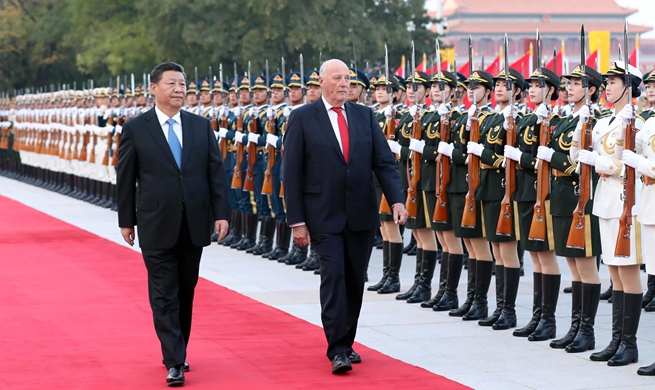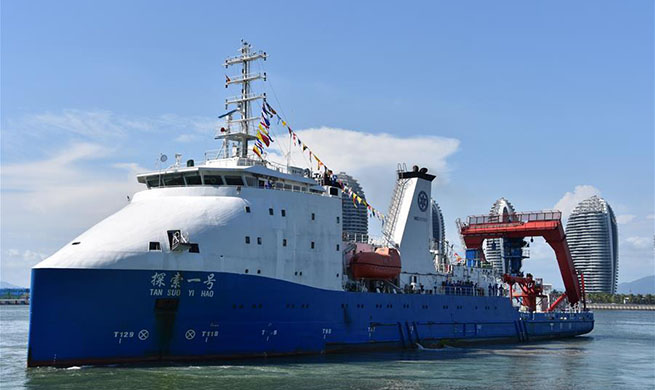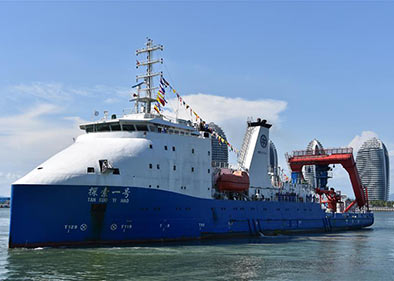by Luis Brito
MEXICO CITY, Oct. 16 (Xinhua) -- A new North American free trade agreement reached earlier this month among the United States, Mexico and Canada, dubbed the USMCA, is unlikely to impact trade cooperation between Mexico and China, experts have said.
Observers in both Mexico and Canada fear a clause -- which obliges a USMCA signatory to inform the other partners of any free trade negotiations with a "non-market country" -- gives the United States undue leverage over its potential trade with China.
"That clause can lend itself to (different) interpretations, but it does not prohibit us from trading with China," said Jorge Sanchez Tello, head of applied research at the Financial Studies Fund of Mexico's Autonomous Technological Institute.
The clause gives the other partners the right to review the text of any proposed deal with a non-market economy -- vaguely defined as any country that a partner "determines" to be in violation of its free-market policies -- and to withdraw from the USMCA with a six-month notice should they dissent.
The clause doesn't mention any country by name, but most observers agree it refers to China, which the U.S. government does not consider to have a market economy, as its complaints to the World Trade Organization (WTO) attest.
However, Mexico-China ties are too well developed to be impacted by the clause, China expert Enrique Dussel, coordinator of the China-Mexico Studies Center at Mexico's National Autonomous University (UNAM), said, noting China has been Mexico's second-largest trade partner, after the United States for several years now, and the two countries have a comprehensive strategic partnership.
"Are we barred from thinking about a free trade agreement? But keep in mind, the relationship between Mexico and China is much more than a free trade agreement," said Dussel.
"One can imagine dozens of other points of encounter in culture, politics, economy, trade and investment without there being a free trade agreement," he added.
According to Sanchez, Mexico needs to recognize China's increasing geopolitical and geoeconomic importance, even though trade exchanges between the two countries are still relatively small compared to Mexico's trade with the United States.
Mexico's government has dismissed the possibility that the clause could affect its ties with China, saying the stipulation only aims to ensure the exchange of information between the highly-integrated North American partners, which must submit the text of the USMCA to their respective legislatures for approval before leaders sign the deal into law sometime this year.
Mexico's Economy Minister Ildefonso Guajardo, the country's head negotiator to the trade talks that resulted in the USMCA, maintained Mexico has not closed the doors to a possible trade deal with China.
In a recent interview with leading daily Reforma, Guajardo admitted the Trump administration wanted the clause to specifically bar the partners from entering into a free trade deal with China.
Mexico refused, saying it had the right to sign trade agreements with any country it chose, said Guajardo.
On Saturday, Mexico's Foreign Affairs Minister Luis Videgaray telephoned his Chinese counterpart Wang Yi, to say the USMCA will not affect bilateral exchanges or limit trade, investment or political ties between the two countries.
To what extent the clause will affect bilateral ties will depend on Mexico's incoming administration, said Dussel, as president-elect Andres Manuel Lopez Obrador is set to take office on Dec. 1.
Lopez Obrador's progressive party, the National Regeneration Movement (Morena), declared in September its intention to boost cooperation with China.
"Mexico did well in not giving in to the protectionist policy the United States wanted to dictate what countries its regional partners could trade with," said Sanchez Tello.
Once approved, the USMCA, which replaces the 1994 North American Free Trade Agreement (NAFTA), is expected to be signed on Nov. 29 and put into effect in the second half of 2019.












